This is hardest article I’ve ever written.
I’ve authored +200 fitness articles for GQ, Esquire, etc., but never said what I’m saying now.
Then again, I’m not your “typical” personal trainer:
I was very un-athletic until my 20’s, and I read psychology, practice Stoicism, and use a “Zen” approach. Being an “outsider” gave me a perspective most trainers don’t have.
And while there’s a lot of good in the fitness industry, there are several powerful, psychological problems many people struggle with that we fail to address or understand.
Until we do, we’ll never fix the cause of what really stops people from getting the results they want. Worse, it’ll keep them stuck in a vicious cycle (which I’ll explain).
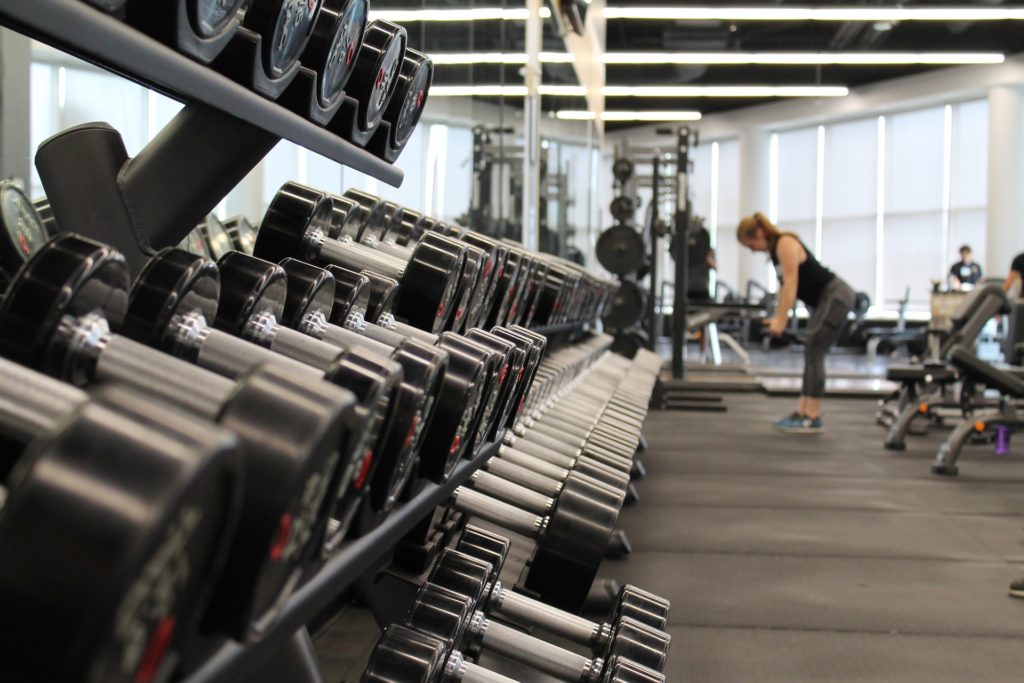
By the time you finish this, you WILL change your thinking and learn more in one article than you’ll learn searching the web for thousands of workouts or diets.
In fact, you might not need another article at all.
Let’s jump right in:
1. The #1 MOST DESTRUCTIVE mindset in fitness
As a trainer, people would regularly ask me for advice. “What do you think of XYZ diet, exercise routine, etc.?”
But I never told them the truth.
Instead, I would get very cautious, say a vague platitude, give them reassurance, and change subjects — before things got weird.
Here’s why:
Imagine you’re an expert car mechanic and someone brings in their broken car. “Can you tell me what’s wrong?” they ask.
You notice something wrong with one of the pistons and you say, “Your piston is broken.”
“No, it’s not,” they say.
Umm, but… it is. Look.
“No,” they say. “You’re wrong.”
Uhh… but look. It’s cracked! Your engine can’t keep going like this.
“No,” they say. “Broken pistons are fine. I have tons of friends who have broken pistons and their cars are OK.”
Oooookay…? Then why the hell did you bring your car into my shop…?

Many people already know the answer they want to hear.
They just want assurance that they’re “right.”
Hell, you can tell them their shoes don’t match their socks and they would listen! But if you explain how their exercise routine is flawed — even when they ask — they will argue.
That’s because they’re not asking for my opinion; they already have their opinion and just want me to agree with them.
Yet it’s the people who listen OPENLY who get the best results!
How to fix it:
If you want to stop struggling and start getting the body you want, you have to stop believing that your actions and beliefs are right.
You have to admit that — gulp — you might be wrong.
I’m not saying it’s “bad” to have a “mediocre” workout program: But if you want to stop spinning your wheels and stop getting NO results, you need to get over that.
Many people would never ask for workout advice; and if they do, they’ll be EXTREMELY protective of it.
Instead, you have to ask questions with an open mind and be OK with the answer.
Because here’s what you want to AVOID:
I would see the same people at the gym, working out day after day…
But their bodies would never change.
Can you imagine how painful that is? Spending hours busting your ass every week, looking in the mirror, stepping on the scale, and seeing that NOTHING CHANGED??
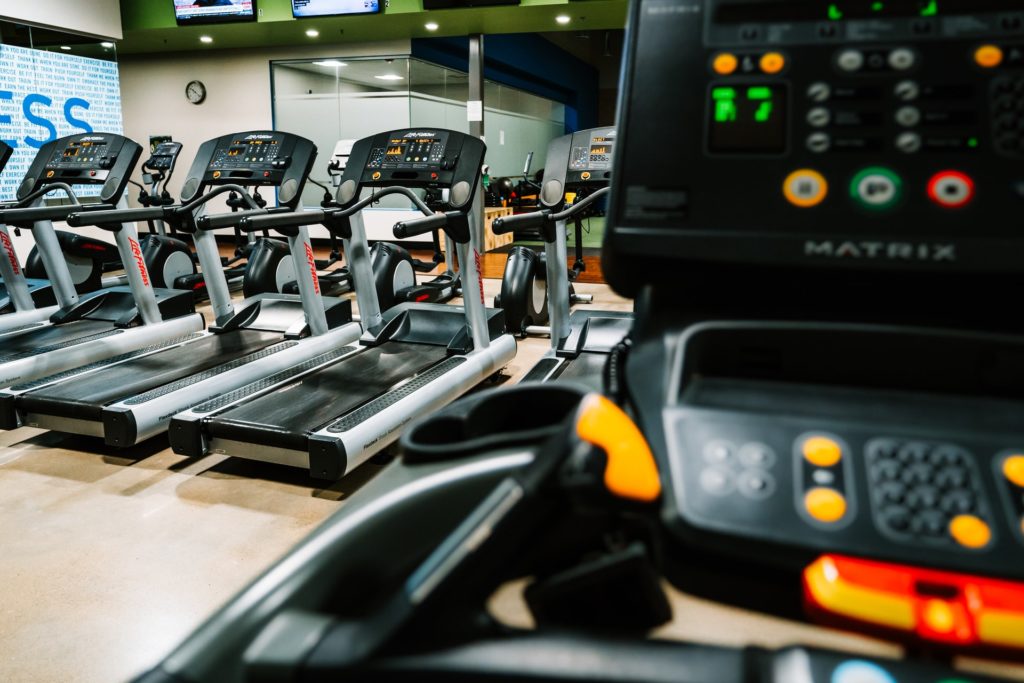
The worst part is, because they’ve committed so much of their lives to their ineffective exercise routine, they were usually AGAINST any sort of critique.
Please, please, please do NOT fall into this trap. (I will show you more about this later.)
And it leads me to the next psychological issue…
2. The two WORST WORDS in fitness
Ready to upgrade your health and fitness? I created 5 free life hacks to boost your results in life. Get them here:
No, not “free pizza” or “free beer.”
(It’s even MORE destructive than that, ha!)
“I know.”
(Which is often followed by: “…what I need to do; I just need to do it.”)
Those two words will hurt someone tremendously, especially if they’re struggling with their body.
Because they will NOT be open to learn new things. They will NOT be open to seek new knowledge — knowledge that could transform their results. They will NOT listen.
Instead, they will stay stuck and spend their energy trying to defend and fortify their beliefs.
To know and not do is not to know.
— Steven covey
If you are struggling with your health and fitness, STOP believing you know.
In fact, when people say “they know what they need to do, they just need to do it,” that is the WORST thing you can possibly say.
It makes it seem they have the answer; it’s just a matter of getting around to it.
But the reality is they actually DON’T have the answer.
How would they? They never had a fit body. They never trained people. They never slept 9 – 10 hours a night to get important recovery and spent an hour a day just taking care of their body. They never spent tens of thousands of dollars on seminars, workshops, coaching, etc.
They just read a couple of articles on the internet.
Yet when you look at the most successful athletes in ANY SPORT, they all have numerous coaches.
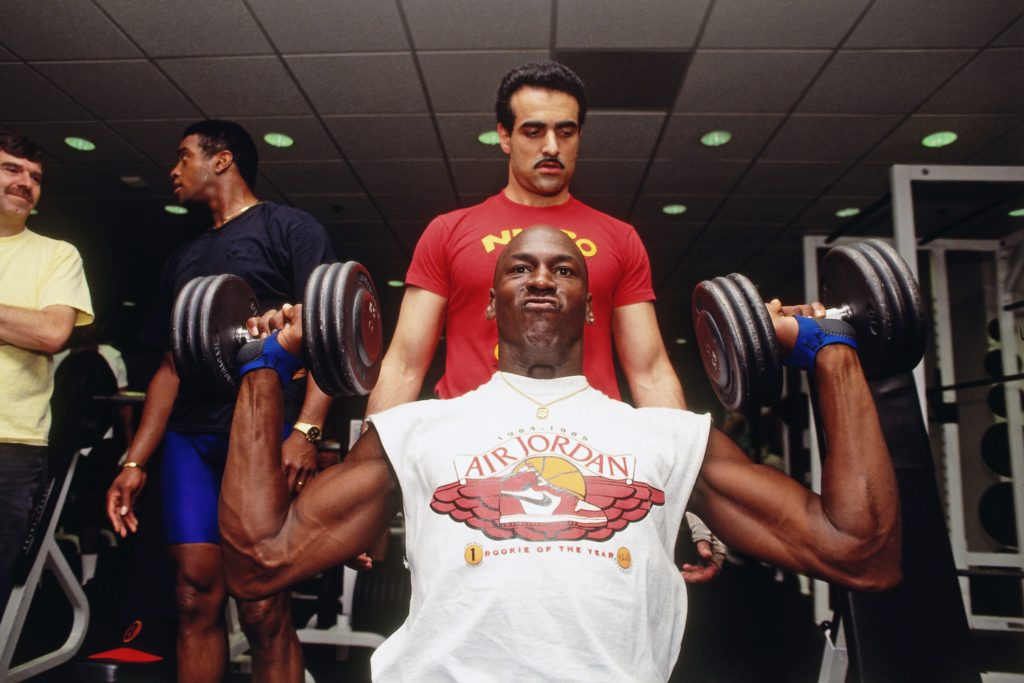
They admitted long ago that they DON’T know and find other people who DO know.
AND THESE ARE THE PEOPLE AT THE PINNACLE OF ATHLETICISM.
Yet a person who can’t even do two pushups will say, “I know.”
See the problem?
How to fix it:
In order to solve this, you need to add just ONE SIMPLE WORD to your statement.
“I DON’T know.”
Admit you might not have all the answers.
I’ve had to do this many, many, many times in my life and, as humbling as it was, it was always the first step to growth.
But therein lies another issue…
When I hear, “I know what I need to do, I just need to do it,” an alarm goes off in my head:
THEY’RE TERRIFIED.

There’s actually a MASSIVE fear inside.
A fear that holds them back from ever getting started in the first place…
3. The REAL reason why many people struggle to work out
Over the years, I’ve written countless workouts to friends (and even random people who’ve emailed me) to help them get better results and start exercising again.
But no one ever did the workout I gave them.
(Or at the very most, they’d do it a few times before they quit.)
Yet I knew it would happen AS SOON AS THEY ASKED FOR A WORKOUT.
Because the reason why they were struggling had nothing to do with the workout.
I could give them a button to push AND THEY WOULDN’T PUSH THE BUTTON.

Many people believe, with the correct “solution” (diet, workout, etc.), they’ll get results.
But the issue goes deeper.
After all, why is it hard to do what they know is good for them?
Simple: They like where they’re at.
Really.
It’s comfortable. It’s easy. It’s stable. It’s certain.
Who wants to actually change their life? Who wants to shatter their comfort zones? Who wants to change their self-image — or the image they have of themselves reflected from their friends, family, coworkers, etc.? It’s hard work!

But if they do nothing, they know exactly what their life will be like tomorrow.
Our brains, in fact, are WIRED to choose certainty over uncertainty.
There’s also that massive fear I mentioned earlier when people say, “I know what I need to do, I just need to do it…”
They’re afraid if they really did give the effort to try, they would struggle, not know the next steps, feel inadequate, feel ignorant, and fail.
SO THEY DON’T EVEN TRY IN THE FIRST PLACE.
They’re terrified to prove to themselves they really don’t know. So rather than facing such a brutal truth, they delude themselves and say, “I can get fit whenever I want.”
They’re afraid to commit to the results that they want because, if they fall short, it’s devastating personally.
They’re also afraid to be compared.
Many people know they’re overweight, skinny, etc. But instead of comparing themselves to others (and falling short), they don’t compare at all, rationalize their body, and do a sort of “non-violent protest” to the whole damn “fitness” thing.
On the outside, they say “they really don’t care,” but inside, they DO care, but are just scared of being measured to the standards that everyone else has.
How to fix it:
Fortunately, there is a solution, and it involves only three steps.
#1. Admit you like your current situation.
If there’s something you enjoy about your current situation, what is it?
Go deep. Ask yourself what benefits you get by staying where you’re at and journal it.
#2. Take FULL ownership of your results.
This one is tough, but it’s also extremely liberating: Take COMPLETE RESPONSIBILITY of where you are right now with your health.
Your current situation is exactly what you’re committed to and what you tolerate.
This isn’t about “fault” or “blame;” it’s about taking control of our lives.

If I don’t like my results, I — and no one else — am responsible for improving it. If I don’t like where I’m at, I have to change it. If I’m not doing something, I have to do it. If I don’t know, I have to learn it. If I don’t have enough time, I have to make time. Everything within my control must be mine.
Once you make this shift, I’m confident your results WILL start to change.
#3. Fix your goals.
One reason why some don’t commit 100% to their goal is their fear of trying and failing.
In fact, it’s a common reason why some people are AGAINST setting an actual goal; because to them, setting a goal and failing to hit it can actually be worse.
But that can be solved by changing HOW they set goals in the first place.
Let’s say you want to “lose 20 pounds.”

Great! Now, here’s a follow-up question:
Is that goal a “means to an end” or “the end” itself?
Because there’s a big difference between “Status” vs “Growth” goals.
A “status” goal is like ticking a box: Losing a certain amount of weight, lifting a certain amount of weight, or even having a certain amount of money.
While those goals are fine on their own, it’s a binary approach: You either have it or you don’t.
And once you have it, you’re done.
A “growth” goal, however, is focused on all the skills, knowledge, and confidence you GAIN on the path to that goal.
Once you have your goal (ex. bench pressing 225lbs), you can literally give it away because you’ve figured out how to do it in the first place.
THAT’S WHY you set that goal: It’s a “means to an end.” (The “end” is growth.)
Start setting “growth” goals. If you want to lose 20 pounds, make it about the growth that happens on that journey in addition to the enjoyment of “losing 20 pounds.”
Because even if you DON’T reach your goal, by chasing it, you still gave yourself direction and a reason to try new things. And if you DO lose it, you will have gained something just as valuable as the weight loss.
4. How fitness is used as punishment
There’s an interesting pattern I see in fitness. Here’s an annual example:
During Thanksgiving, some people will beat themselves up for their actions.
Damn, I ate too much. Ugh, I had so much dessert. Ahh, I gained 3lbs!!

Then they’ll react with a tinge of anger by saying something like, “I need to go to the gym and hit it hard to burn that stuff off.”
On the surface, it just seems like they just want to work harder to “burn the extra calories.”
But there’s something else I see:
I often notice they, at some point, had a “poor” body image: Often, they were very overweight or underweight and still condemn themselves for that past.
So when they eat “too much” or “get lazy” they actually punish themselves through fitness and beat themselves back to where they want to be.
Ate too much ice cream last night? 10 extra sprints the next day.
Ate too much turkey on Thanksgiving? Five extra sets of squats.
First, that makes NO sense physiologically. There’s no way you can put on that much weight in a short amount of time. It’s probably water weight (or one trip to the bathroom).
There’s also a “diminishing” number of calories you can actually burn. (Basically, if you do a 60-minute run, doing an EXTRA 60 minutes will NOT double your caloric burn.)
Second, and more importantly, FITNESS SHOULD NOT BE USED AS A WEAPON.
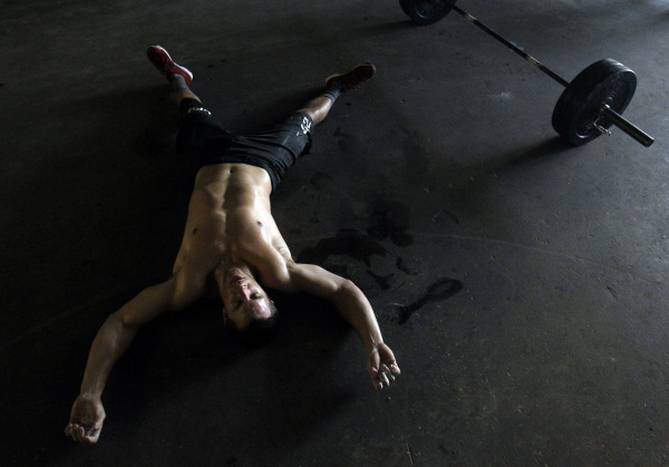
Fitness should not be used as a belt to whip a person’s former-self when it’s “bad.”
Not ALL examples are like that, but if you find yourself denouncing your actions, it might worth it to step back and see how you really feel.
Once, after hearing a similar comment from a fitness friend, I asked him directly, “When you were younger, were you either really skinny or really fat?” (Knowing it was one of the two.)
“I was really skinny.”
Violà.
How to fix it:
The healthiest mindset is to use fitness for health and fun — that’s it.
If people use it as punishment, that it is a HUGE RED FLAG that should be addressed because no amount of fitness will ever solve it.
A simple thing to do is to stop judging yourself as “bad,” “fat,” “lazy,” etc. when you overeat, skip a workout, or make a mistake.
I’m not saying that it’s “good,” but adding a “good/bad” label to the situation just makes everything worse; it becomes less about fixing the issue and more about discipline.
Instead, take a deep breath, relax, and just get back to your normal exercise routine.
And if you’re afraid, by making a mistake, you’ll revert back to your former self, read this:
5. Why most diets and workouts fail (and my unusual way to FINALLY get fit)
Many people buy exercise programs, gym memberships, and personal training, yet never follow through or get results.
So I won’t give you the same advice in this article.
Often, when people start a new workout or diet, they’re hinting, “I’m going try this for a bit, but when I’m done, I’m going to stay the same person.”

Instead, the better way is to start CHANGING YOUR IDENTITY. Because once you change how you see yourself, you will automatically act in new ways.
If you only learn ONE THING from this article, it should be this:
Your body is a direct reflection of how you feel about yourself.
(Because if you felt differently about yourself, you would look differently.)
There is no other way to put it.
I wish this weren’t so. (I really do.) But in virtually every case I’ve seen, people with physique issues typically have self-worth issues independent of their physique.
They got stuck in some emotional “holding pattern” and have a body that reinforces it.
Now, I’m not saying everyone who’s fit has NO self-worth issues and everyone who’s not HAS self-worth issues. (I’ll explain how you can be fit for the “wrong” reasons later.)
But if you’ve struggled with your own body, I strongly suggest you to look DEEPER at how your own self-image.
Do you see yourself as a fit person? Or do you see yourself as something else?

A person can try every workout and diet under the sun, but until they change how they see themselves, they will struggle to get the lasting results that they paid money to get.
(And that’s why I’m writing this article.)
Fortunately, you don’t need to repeat that pattern.
The best part is, by acting in new ways, you can change how you see yourself.
How to fix it:
As Dr. Benjamin Hardy teaches: Behavior shapes your identity.
There’s a concept in psychology called “self signaling,” where your body actually gets clues about your own identity based on your own actions.
So even if you’re currently not “inspired” or not “in shape,” it doesn’t matter. Your mind is always watching what you do and say and you can change it with new behaviors.
(That’s why behavioral change is a useful tool in exercise and nutrition.)
From now on, whatever you say after, “I am…,” BE VERY CAREFUL.
If you keep saying to yourself — and to others — that, “I am lazy / out of shape / weak / fat / tired / etc.,” it becomes a self-fulfilling prophecy.
Banish that vocabulary from your life and reap all the results.
You can also use my “Bruce Lee approach,” where you master what you ALREADY have to gain a ton of momentum.
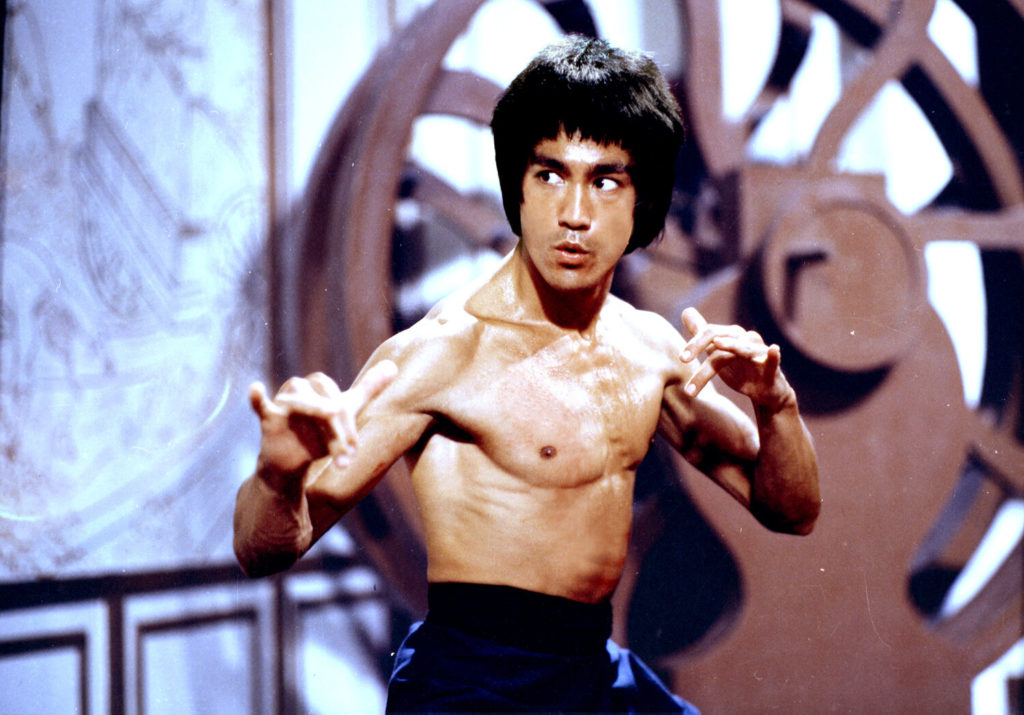
Where are you already doing a great job? Drinking water? Getting good sleep? Eating clean? MASTER THE HELL OUT OF IT.
Even if you think you’re “too skinny/big/etc.,” be the fittest version of your current self! Walk like you’re fit! What would the “fit” version of you do? Then do it like a beast!
Here are some other ideas:
- If you want to lose fat, buy a really nice (and expensive) workout T-shirt at the weight or body size that you want to be.
- If you want to gain muscle, ditch your normal gym membership and join a more “hardcore” gym.
- Grab a piece paper and write what your daily life would look like if you were fit
These actions will help signal to yourself that you are your “fit self.”
And once you change inside, you can never go back.
6. This is why people get in shape for the WRONG reasons
As a kid, I was the lightest and shortest student in my entire grade (even including girls).
I was picked on and no one wanted me on their basketball team. (In fact, people used to fight over me — so I WOULDN’T be on their team).
Around my 20s, I began a fitness journey that would reinvent my life. Eventually, I went from that skinny, ridiculed kid to adding +30lbs of muscle, training pro athletes, building a business, and becoming a fitness expert for GQ, Esquire, and Under Armour.

115lbs 
163lbs
But overcoming my past was never — for one millisecond — the reason I wanted to get strong and muscular.
(And I swear, “getting women” was NEVER my motivation either.)
Here’s why I did it:
I wanted to become strong and muscular because — even when I was teased and even with my shitty genetics — I always saw myself as an athlete INSIDE.
Even when I was a little, scrawny kid, I would watch ESPN (an American sports TV channel) ALL THE TIME!! I would watch reruns of SportsCenter and watch Lakers, Dodgers, Kings, and UCLA games whenever I could.
I even pretended to be a quarterback and threw a football inside my house while trying not to break anything. (You get pretty accurate that way!) When I got a PlayStation 2 — which I won in a contest that I saw on ESPN — the only video games I ever bought were sports ones. (NHL, NBA, NCAA Football, etc.)
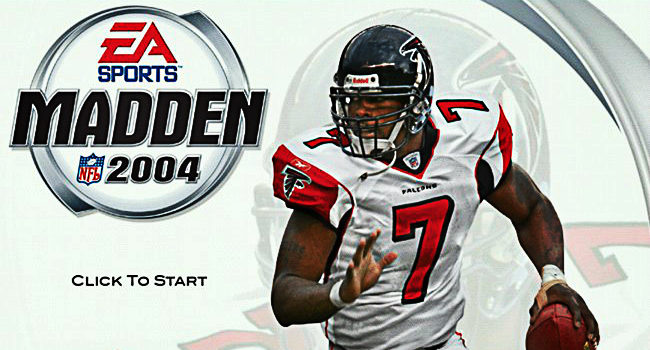
My parents used to HATE that I watched so much sports.
But I didn’t care. I LOVED it.
It shaped my identity and helped me see myself as strong and muscular inside.
But therein lies a problem:
Unfortunately, a lot of people the fitness industry actually have self-image issues.
Even though they “gained 50 pounds of muscle” or “lost 50 pounds of fat,” inside, they’re still insecure and fearful and perpetuate those same issues on their clients.
To these trainers, they can never be lean enough or muscular enough. While it’s good to continually push yourself, there’s a certain emptiness and internal strife when you’re constantly trying to prove yourself on a never-ending quest towards perfection.
Many CANNOT take “off days” or “go easy.”
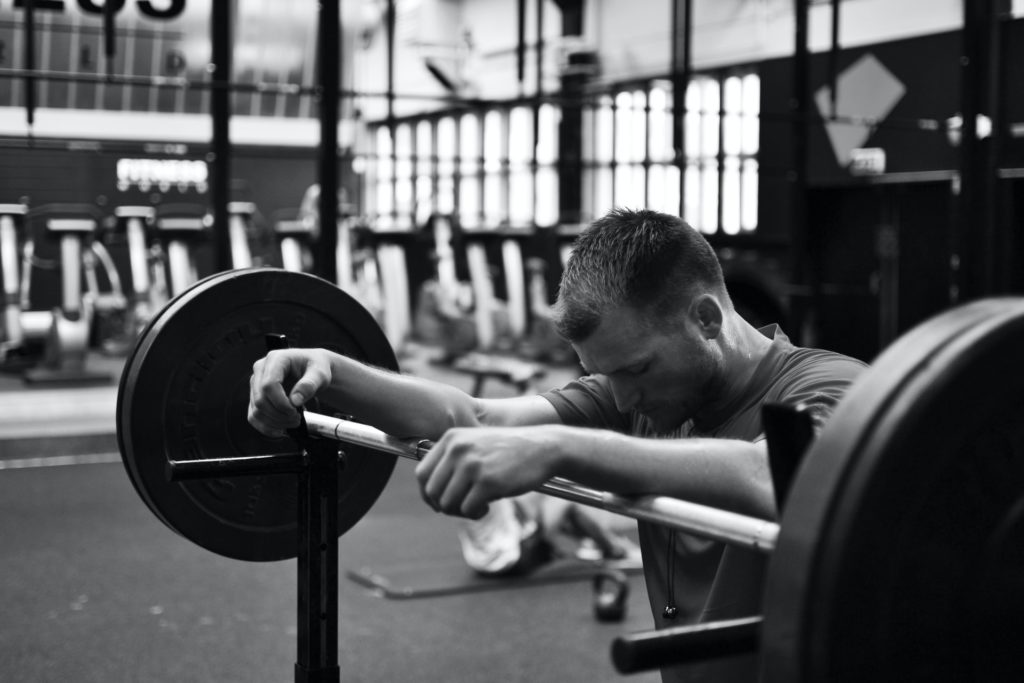
(I have worked with trainers who do it purely for the love of it. They simply love to help others and do all kinds of fun activities, and I’m not saying any negative about that. But that’s not always the case.)
Working at many gyms, I’ve struck up countless conversations with people and have seen the full spectrum of human psychology. People who have low self-worth and constantly beat themselves up… to people who have incredible bodies, but never feel they’re “good enough” (or have to “show off” to get validation).
So how do you address this?
7. How to guarantee success
Here’s my “manifesto” to guarantee success in your fitness journey:
Stop trying to prove yourself.
Stop thinking that you NEED to prove yourself.
Instead, pursue health & fitness purely for health and fitness!
No body fat percentage, weight on the scale, bench press record, 10K time, or amount of “head turns” will ever give you enough self-esteem, self-worth, and validation.
Do it because you enjoy it.
Do it because you want to.

Here’s my acid test:
Ask yourself: “If no one knew about my health and fitness journey — and I could never tell anyone about it — would I still do it?”
Really think about it.
If no one ever knew you lost 30 pounds, got a six pack, or ran a 6-minute mile — and you could never share it with the world — would you still do it?
If the answer is “yes,” then I assure you, you can look forward to many decades of fun and enjoyment on your fitness journey.
Best of luck.
A very honest right from the heart written article to shake up one’s mind to be all the time themselves without the stress to show or not show their specialness or unhappyness inside.
Be yourself and happy enjoying just the action by itself without expecting admiration or aplause form others. Not easy in this narcistic present timeframe of ours but to me still the best way to feel conformtable with one’s own being
Thanks for sharing
Thank you!